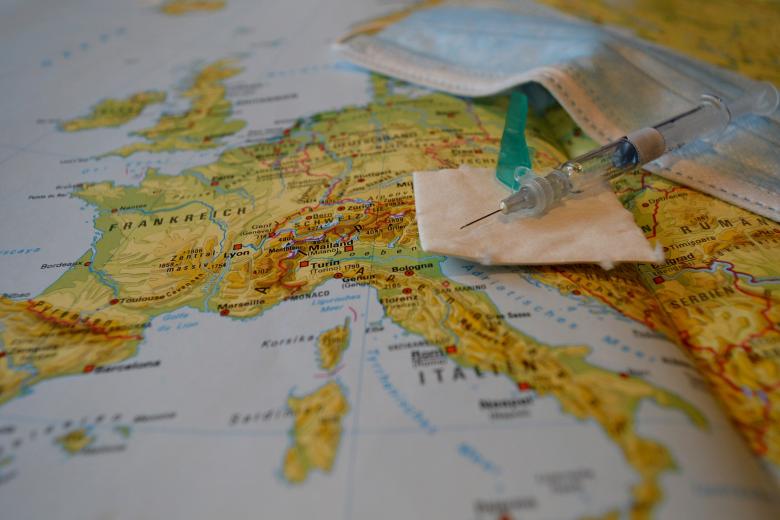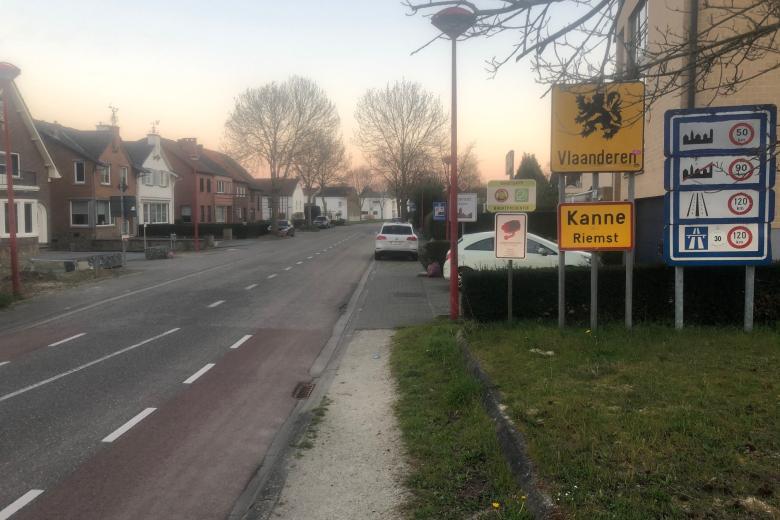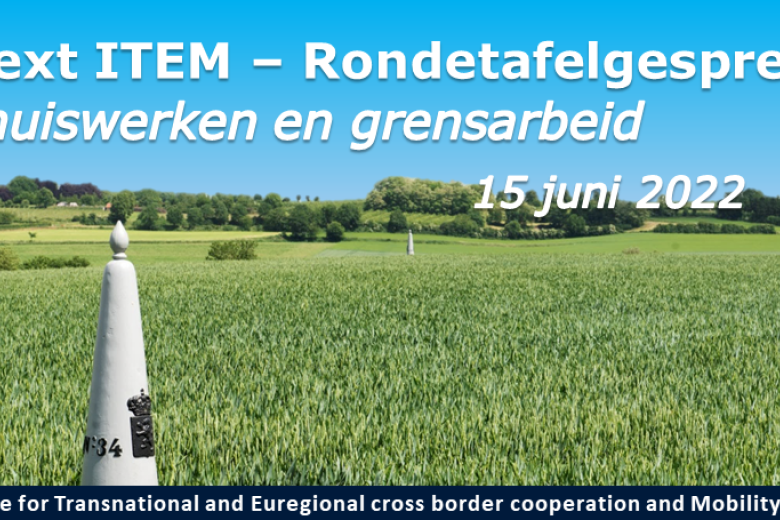In the ITEM Cross-Border Impact Assessment 2021, the "Impact analysis into the future of working from home for cross-border workers post-COVID-19" investigated the consequences for taxation and social security of working from home by cross-border workers. Hybrid work is the future, also for the region, according to the SER advisory report 'Hybrid Work'. But working from home by cross-border workers can be complex, non-transparent and costly, both for employee and employer.
Talk to each other about undesirable behaviour
- General
A male senior manager enthusiastically slapping a female colleague’s buttocks – is that acceptable? And what if a female staff member did this to her female supervisor? Or a manager who puts his arm around a colleague who is having a hard time? What is crossing the line? Who decides?

Cross-border cooperation during a cross-border pandemic
- Corona
- Law
Not out of possibility, but out of necessity
The last couple of weeks of 2021 were dominated by the cross-border nature of the COVID-19 crisis, and the fight against it. While the Netherlands went into the holiday season under a lockdown, complete closures were largely absent in Germany and Belgium. This leads to so-called cross-border effects, where people move, like a waterbed, to the neighbouring countries to enjoy eating and drinking out, as well as shopping. In response, the governments of the Netherlands, Flanders and North Rhine-Westphalia urged people not to visit the neighbouring countries if it they do not need to.[1] It is not the first time, as it has been the case a few times during the past two years of COVID-19. Also in 2020 just before the holiday season. An ultimate emergency measure was the Belgian border closure, after the events were the other way around, with many Belgian residents coming to enjoy the possibilities in the Netherlands.
ITEM analyses show how cross-border cooperation fell short during COVID-19, with critical consequences for the border region where commuting to other countries is a daily phenomenon. After all, especially there, measures taken at the national level clash with each other and create friction.

The recipe to build on resilience
- General
Although the delta variant is currently leading to a sharp increase in the number of positive Covid 19 tests, hospital admissions are fortunately still low. Let's hope it stays this way and that with the growing number of vaccinations we slowly move in the right direction with Covid 19 in Europe. If so our societies can open up again step by step. We all long for closeness and being together. If things are going in the right direction, does that mean that Covid 19 will no longer influence our lives? I do not think so. Not that I fear that the virus will completely disrupt our lives in the long run, but we surely will have to adapt. I am convinced that our experience with the pandemic will lead to lasting changes in society in a broad sense, and certainly also specifically when it comes to higher education. We may unconsciously have already planted the right seeds prior to the crisis to make the leap forward now. A leap that strengthens European higher education and thus maintains its position in the global academic force field. An optimistic approach that I would like to share with you in this first UM Internationalization newsletter. It is time to move forward.

The similarity between Le Quattro Stagioni and the Brabançonne
- Law
Since the elections of 26 May 2019 for a new Belgian federal government, intensive negotiations have been held and various possible coalitions have been explored.1 Eventually, the Vivaldi coalition2 succeeded in forming a new Belgian federal government on 30 September 2020. 3 This contribution examines how much music the coalition agreement4 of the Vivaldi coalition actually contains when it comes to the effects for the Belgian border regions. Although not all details are yet known, it has already been established that Belgium will face several reforms in the coming years.
This contribution includes the policy initiatives - commented upon by the author of this contribution - which could have cross-border effects. Specifically, this contribution focuses on policy initiatives related to cross-border healthcare and social, fiscal and climate policies.5

Work in progress: Belgian social policy under construction
- Law
After 493 days of intensive negotiations, Belgium has a new federal government1 The largest amount released for the new policy is invested in social policy, i.e. 2.3 billion euros out of a total of 3.2 billion euros. The federal government's objective is to protect social security and secure long-term financing. As a result, both the social security system and the pension system will be significantly modernized in the coming years. This contribution analyses the social policy where it becomes clear that the first pension pillar - the statutory pension - will be strengthened and the second pension pillar - the employer's pension - extended.2

Corona: op weg naar een Europese Gezondheidsunie?
- Corona
- Law
Het is wellicht wat eigenaardig reflecties over de rol van de EU op het terrein van de volksgezondheid, en de huidige corona-crisis in het bijzonder, te beginnen in 1952, maar toch doe ik het. In december van dat jaar organiseerde de Franse regering een conferentie in Parijs waaraan vertegenwoordigers van tal van staten, waaronder de zes EGKS-lidstaten, deelnamen. Onderwerp op de agenda: de mogelijke oprichting van Europese Gezondsheidsgemeenschap.

Border perils and the Hofstede dimensions
- Business and Economics
- Law
During my lunch break or in the evening, it is a pleasure to take a walk and visit the border crossing, because I want to know how our southern neighbours have cordoned off the border. The Dutch-Belgian border is about 300 meters away from me. Only recently I realised that my father once guarded that border, as a member of the Royal Netherlands Marechaussee in the sixties. As a result of European unification, the border became gradually less visible, until the coronavirus struck. Without a vignette for commuting you are no longer allowed to cross the main roads. Even the many stealthy roads cannot be accessed by car due to the roadblocks and fences that are placed everywhere. It is possible by bike or on foot, which requires some effort at times, but it is not allowed. Not a single Dutch policeman to be seen, but a lot of Belgian policemen. They enforce the rules that have been tightened in the last few weeks.

The Netherlands ignores advice from the European Commission on foreign pension transfers
- Law
Last November, the European Commission (EC) sent the Netherlands an advice stating that the Netherlands should amend its tax rules. The Dutch tax rules prevent that pension accrued in the Netherlands can be transferred when you move abroad. The so-called cross-border value transfer of pensions exposes the debate between European freedoms and fiscal autonomy. The government rejects European interference in taxes and pensions, which makes it more difficult for people to move around the EU. As a result, the government now runs the risk of the EC taking a case to the European Court of Justice. In this blog you’ll read how all of this happened.

Border Obstacle when Renewing Driving Licences
- Law
Do you have an ICD and live in the border region? In that case, it is possible that your cardiologist is located in a neighbouring country. According to EU law, EU citizens have the possibility to receive cross-border care. Nevertheless, it appears that this health care provision is not widely accepted. For example, the Dutch CBR does not accept statements from cardiologists based in other Member States. Such actions can be considered to be contrary to the applicable EU law.

